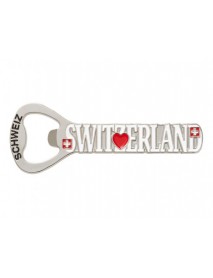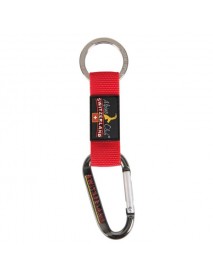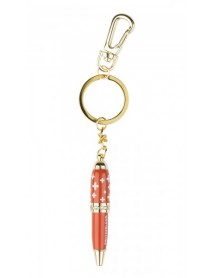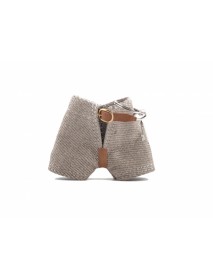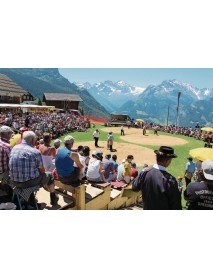Edelweiss - 'Swiss Cow' Keychain
Product Description
Details
Edelweiss - "Swiss Cow" Keychain
From the cute Milky Family collection this keychain is guaranteed to keep together your most valuable keys.
A small bean bag ensures the stability of the cuddly toy.
Color: white, grey, black; T-Shirt: Red and white Swiss cross
Material: plush (velvet style)
Length: 11 cm (without keychain)
Wherever you go in Switzerland, the ubiquitous cow can be seen grazing an idyllic pasture, as a wooden souvenir, or starring in an advertisement. Favourite animal and overseas ambassador, the cow is a symbol of Switzerland. If you ask a Swiss person what animal they associate with Switzerland, the cow is likely to be among the top answers. Whether you earn your living from them or just see them on your way to work, cows belong to everyday life in Switzerland. They are also a fundamental part of our country's heritage for historical, economic, and sentimental reasons.
If Switzerland had to choose a national animal, the cow would be a strong contender. Unlike other countries, Switzerland doesn't officially have a national animal. But if it did, the cow would have to go up against the marmot, the ibex and the St Bernard, as one of the 'big four' featured by the Swiss National Museum Zurich in its 2018 exhibition 'Swiss Bestiary'. In a survey of visitors to the exhibition, the cow came in second. It’s probably partly because dogs are popular pets and the St Bernard is a breed that originated in Switzerland. For many Swiss, the sight of a cow evokes a feeling of belonging which is rooted in our history. The cow has historical significance that goes back to the founding of the Swiss Confederation in 1291.
The historical connection with the cow has sometimes made the Swiss the object of mockery. The Swiss were perceived as rich merchants dealing in cattle and cheese, for which they were disparagingly called 'vachers' (cowherds). Then in the 16th and 17th centuries, the term acquired positive connotations with increased reverence for the exemplary lifestyle of the simple herdsman.
Trade in dairy products has turned the cow into a symbol of economic prosperity. Swiss farmers began exporting their dairy products in the 18th century. Many of the old families made a living and grew prosperous on revenues from their cattle, especially milk, meat and leather products. Especially in the mountain cantons, where until the dams were built there was little work. Proud communities immortalised the source of their prosperity in local arts and crafts. It is at this time that the cow became associated with the tradition of the Poya, the driving of cattle up to summer alpine pastures, and made its début as a traditional wooden children's toy.
The Swiss like cows because many of us have some kind of contact with them. The Swiss have a special relationship with them because they evoke childhood memories, of visits to the chalet or mountains.
Additional Information
Additional Information
| Canton of Manufacture | Not manufactured in Switzerland |
|---|

